Lizzo’s Plus-Sized Lawsuit Scandal and the Problem With Celebrities as Symbols
When the myth and message are more important than the music, inconvenient truths can ruin everything.
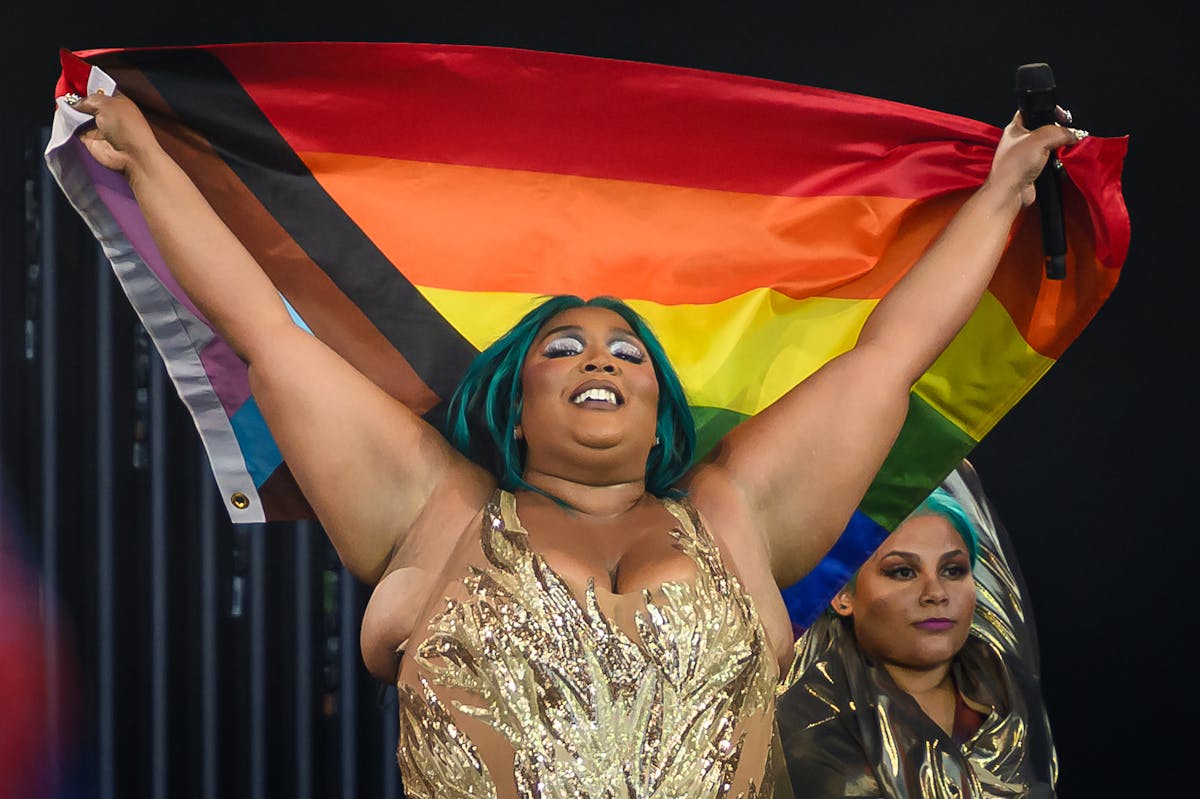
Melissa Jefferson, who goes by the stage name Lizzo, has described herself as “a fat Black woman in America.” She’s a hugely talented and popular musician at the top of her game, who interestingly blends R&B, hip-hop, and gospel in her flamboyant pop.
She’s also a defendant in a salacious new lawsuit that threatens to destroy her carefully crafted image and perhaps her career. More on that in a moment.
Since Lizzo first broke out on the national stage a few years ago, her music — though very good — has never been that important to her biggest fans, whether those in the audience or the mainstream press. The focus has more been on her message.
Her Apple Music bio opens with, “Lizzo is here to let it out. Body positivity, queerness, the embrace of the self in all its possibilities: For her, the freer, the better.” Pointedly, it then says, “Yes, she’s a singer,” and then says, “But she’s also an emblem for…” a long list of various social aspects that goes on for a long paragraph. Her musical influences are first mentioned two sentences into the second paragraph.
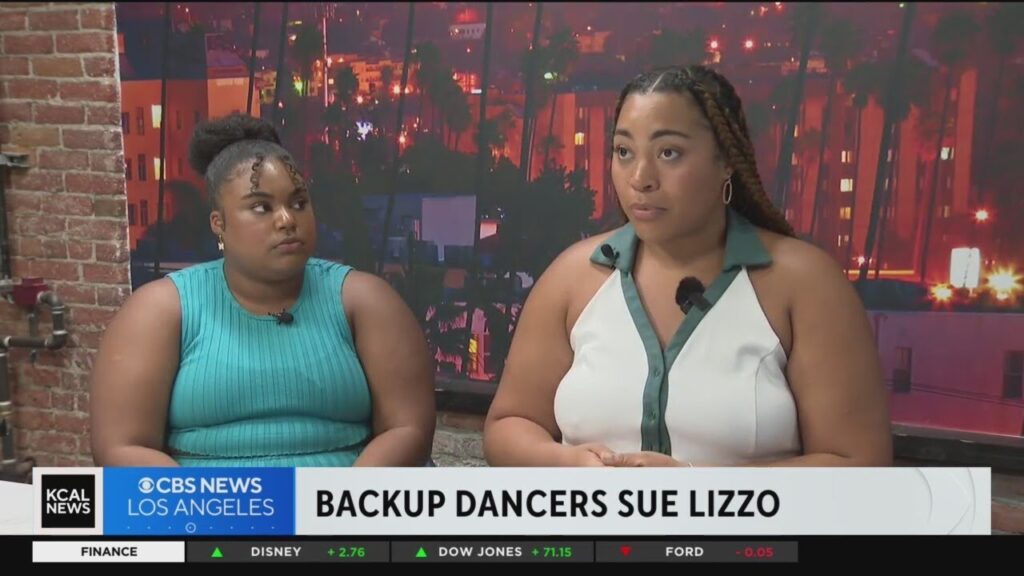
The elite press, not known for its expertise in hip-hop, adores Lizzo. According to the New York Times, “Juice” is a “Pop Anthem as Irresistible as She Is,” but, more importantly, her “musical catalog celebrates diversity in all forms: body in ‘Fitness,’ sexuality in ‘Boys,’ race in ‘My Skin,’ and more.”
When “fans and disability advocates called on Lizzo to change what they called an ableist slur” — this being the oh-so-scandalous “spaz,” which is “offensive” slang for a klutz — she was widely applauded for self-censoring and changing her lyrics. The Washington Post says that “Lizzo is everything,” bemoans “What the fat-shamers don’t get about Lizzo,” and — as though she is a policy wonk, not a twerking pop star— dedicates an article to her thoughts on abortion laws in Texas, where she grew up.
Last year’s fawning HBO documentary, “Love, Lizzo,” was framed as “Heartfelt, honest, and special” by HBO, and her Amazon Prime reality TV show, “Lizzo’s Watch Out for the Big Grrrls,” — about her process to find obese back-up dancers — wasn’t just another marketing opportunity, for which she would be paid handsomely.
Rather, it was a way to ask “Big Questions,” gushed the New York Times, and was “a new kind of TV show” that addressed both “body positivity” and “body neutrality” and wouldn’t “shy away from the dancers’ injuries, insecurities and occasional food issues.” Whether the show was any good was not all that relevant: the HBO documentary was important.
Lizzo’s shapewear line, Yitty, which goes up to a plus-size 6X, wasn’t just a celebrity cash grab, but — according to Vogue — it was going to “Revolutionize Shapeware.” This March, they released a “gender-affirming” line, titled “Your Skin,” because “You Deserve to Feel Like You.” Marie Claire’s subtitle for this story reads, “And I thought I couldn’t love her anymore.”
This mentality permeates the coverage of Lizzo in the elite press to an absurd degree. Everything she does is important and meaningful. She didn’t post nude photos online for attention. She was “using her own body to force a reassessment of prejudices around size and beauty.”
When she showed off her $1,190 Gucci ‘Rhyton Glitter’ sneakers, it wasn’t just the usual celebrity conspicuous expenditure. It was, in her words, “self-care.” And though she will constantly say that she isn’t brave for being a “fat” celebrity, that just underlines that not only is she so brave — the troops have something to learn from Lizzo — but she’s modest too.
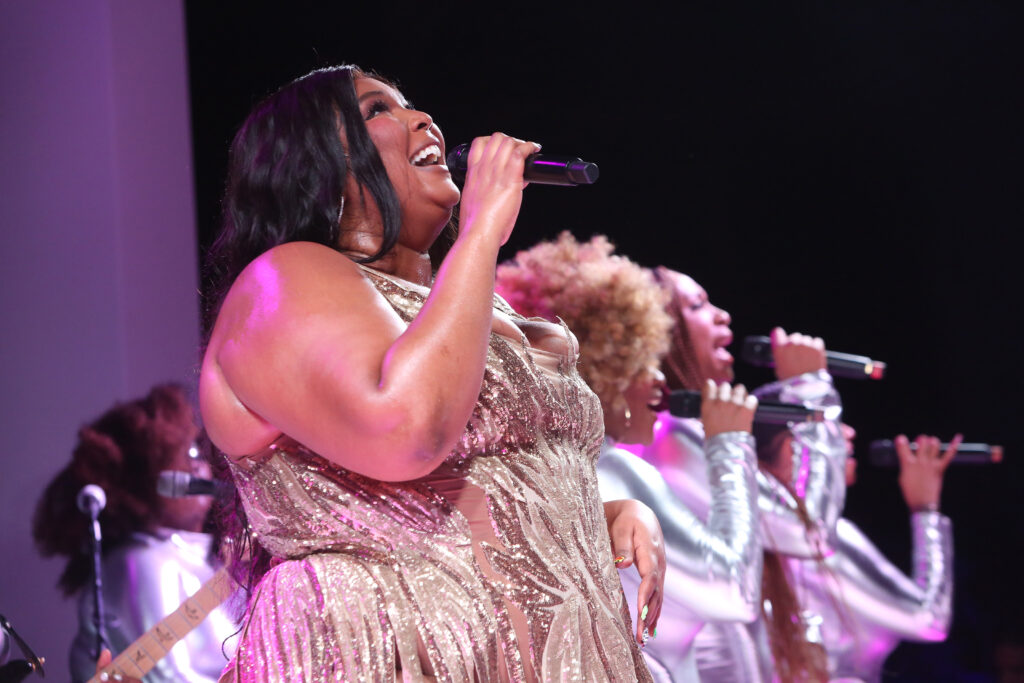
Her music is quite good, but her publicists realized it was easier to sell her as a personality and a symbol. Albums can flop, and tastes can change, but a symbol of “body positivity” is evergreen — unless she lost weight and got healthier, obviously. Regardless of whether you enjoy the music, to own an album with an overweight naked Black woman on the cover, unafraid to show her body, provides a certain social cachet to the kind of person whose house I’d rather not visit.
Kanye West’s moral and psychological decline has had no impact on my listening habits because I value him as a masterful artist, not a symbol. The same is true for Roman Polanski and his films or appreciating the paintings of Picasso. Yet, when you frame a musician as a “symbol” or “personality” — beloved for “speaking their truth” and promoting “acceptance” — any inconvenient truths can utterly destroy that.
For Lizzo, that reckoning has come in the form of a very embarrassing lawsuit from three of her backup dancers who had worked on her recent “Special” tour. As first reported by NBC News, the women accuse Lizzo of exposing them to an “overtly sexual atmosphere that permeated their workplace,” despite their stated discomfort with these situations, including coercing them into attending after-party “outings where nudity and sexuality were a focal point.”
Attendance of these regular post-show jubilations were not mandatory, but — according to the lawsuit — there was an understanding that those dancers who did participate were strongly favored by Lizzo and her team.
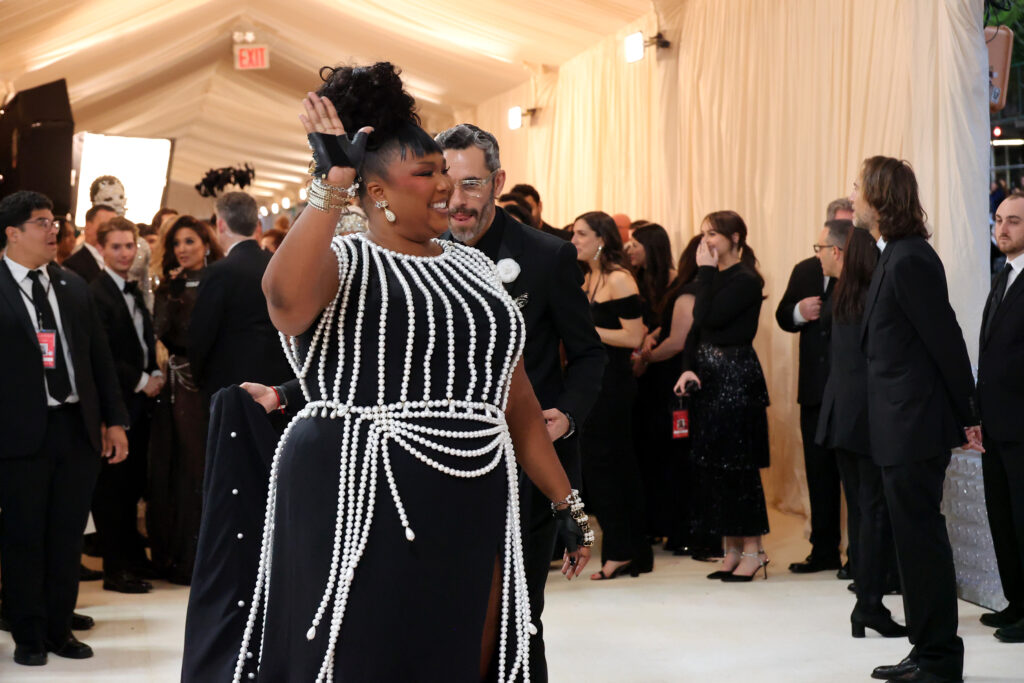
One such outing was at an Amsterdam strip club, Bananenbar, where Lizzo and her crew are accused in the lawsuit of chanting for one of the visibly uncomfortable plaintiffs to touch a nude performer. The aggrieved backup dancers alleged they were subjected to a range of lewd acts — including being ordered to eat bananas which had previously been invasively used as sex toys.
The week after the traumatizing night out at Amsterdam, Lizzo allegedly invited her unsuspecting dancers to a different club to “learn something or be inspired by the performance.” Once there, the plaintiffs were unexpectedly faced with nude cabaret.
The dancers also accuse Lizzo’s dance captain, Shirlene Quigley, of routinely proselytizing her Christian faith — which must be a distinct, hedonism-accepting variety — and the distinctly obese Lizzo is accused of repeatedly mocking a dancer’s weight gain. I will note that these dancers appeared on “Lizzo’s Watch Out for the Big Grrrls” — the show praised for Lizzo’s commitment to highlight plus-sized dancers and for its uplifting, affirming atmosphere.
The suit is large and multifaceted, and many of the attached claims are unconvincing. The Puck writer who often reports on celebrity lawsuits, Eriq Gardner, thinks the lawsuit is weak, at least from a legal standpoint, as the courts have tended to give celebrities in creative fields wide leeway to engage in offensive behavior which can somehow be considered “free speech.” The suit’s racial harassment claim comes from the all-minority dance crew only getting 25 percent pay during downtime, rather than the 50 percent requested rate. Yet being miserly is not racist. There’s also a false imprisonment charge thrown in there, which also won’t stick but makes for better publicity.
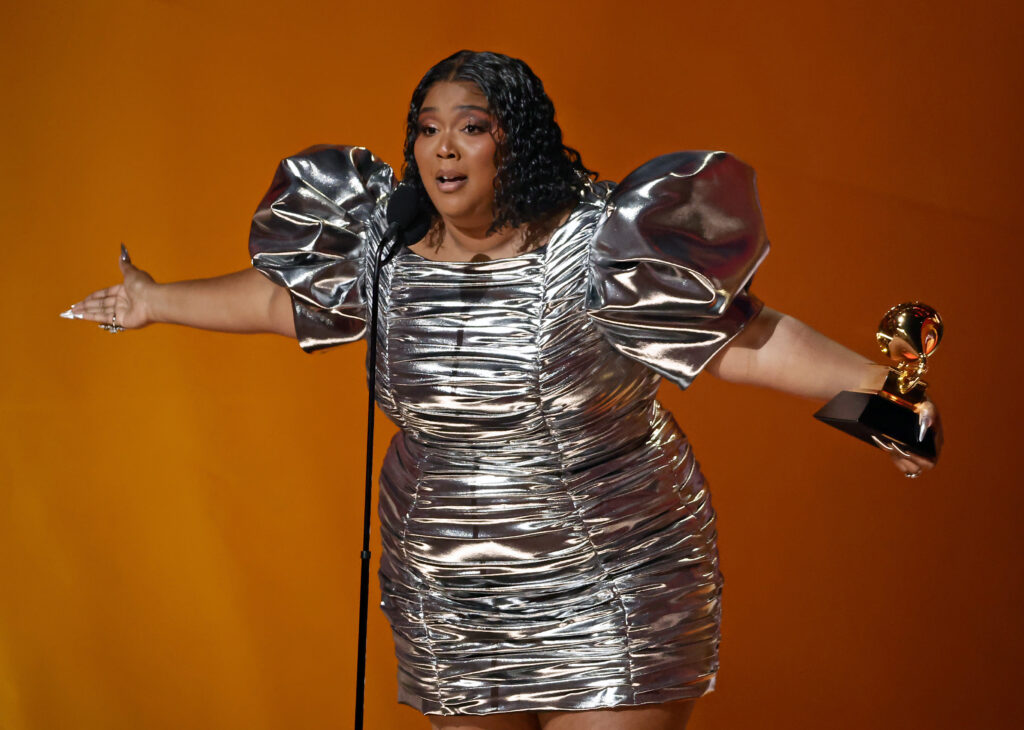
However, it’s also worth noting that other former employees — not involved in the lawsuit — have taken to social media, standing behind the dancers. Lizzo’s foul attitude is something I have personally heard about from sources in high-end hospitality and was reiterated by Oscar-nominated filmmaker Sophia Nahli Allison, who has gone public, saying she left a 2019 documentary project on the musician for her “unkind and cruel” manner.
Perhaps this is also false. On Thursday, Lizzo put out a heavily-lawyered statement on Instagram, writing that she was “hurt” by this situation and that the previous days have been “gut wrenchingly difficult and overwhelmingly disappointing.” She writes, “I am not here to be looked at as a victim,” — despite the tone of this entire statement — and denies ever body-shaming her employees, as though that were the most grievous crime here.
The pile-on from people who don’t like Lizzo is beginning to resemble the dethroning of Ellen DeGeneres, who was brought down in 2020 by an avalanche of allegations of sexual harassment, racism, and bullying. Post #Metoo, the public is far less forgiving of celebrities for bad behavior that used to go unpunished – just ask Lea Michele or Chrissy Teigan, who both had career near-death experiences when they were accused of bullying.
I will let judge and jury decide the validity of the claims from Lizzo’s accusers, but the elite press — who hyped her up as a symbol of acceptance but also breathlessly repeated during #MeToo that we must “believe all women” — are in a knot of their own making. A “fat Black woman” they’ve lionized for celebrating her obesity is now being called a bully, a racist, and a hypocrite by her overweight, Black backup dancers. They want to “believe all women” yet still support female empowerment, body positivity, and other vague, high-minded platitudes that Lizzo has come to represent.
The Lizzo hypocrisy scandal is a reminder for publicists and journalists everywhere that, ultimately, the only thing that should matter about a musician is his or her music. They’re not symbols, advocates, change-makers, or idols. They’re entertainers. And, for what it’s worth, “Juice” is a pretty great song.

